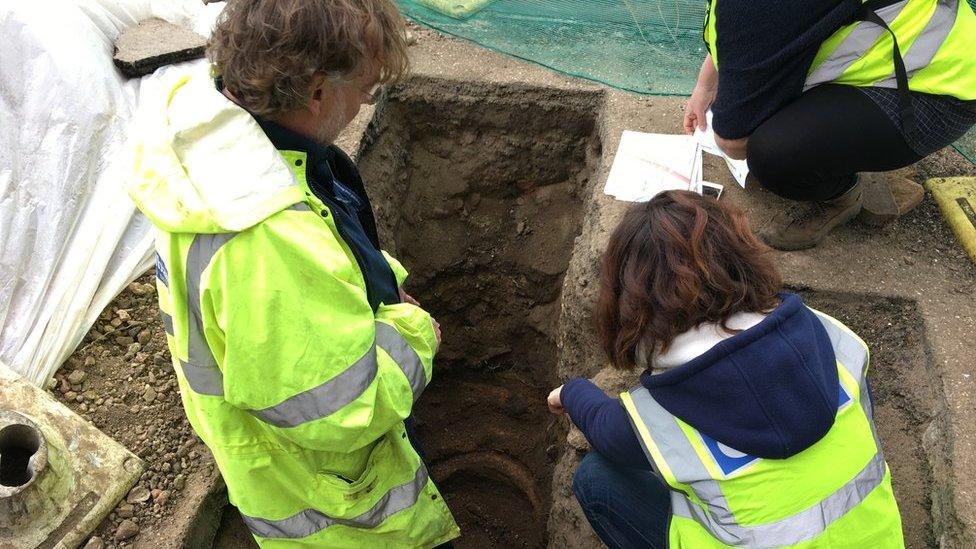Bedfordshire's first Roman town wall unearthed in Sandy
- Published
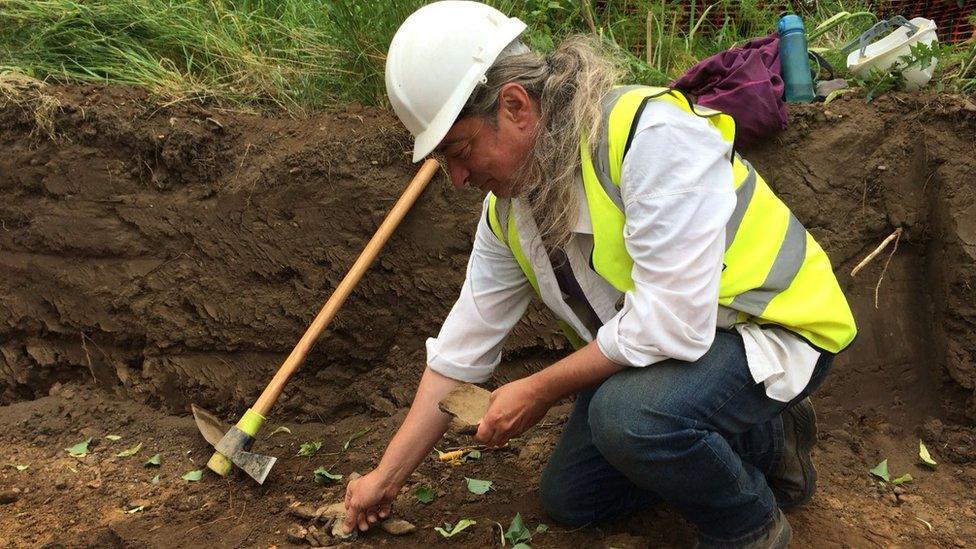
Items discovered by Les Capon and his team include the skeleton of a woman, a funeral pyre, Roman rubbish and a pottery kiln
Archaeologists excavating a former allotment site in a market town have made the "absolutely brilliant" find of a previously-unknown Roman wall.
The dig in Sandy, Bedfordshire, has uncovered about 200 items dating from the Iron Age in 500 BC to the Saxon period in 800 AD.
Among the finds is the remains of a Saxon house.
The site, in Stratford Road, is to be turned into a cemetery, car park and council depot.
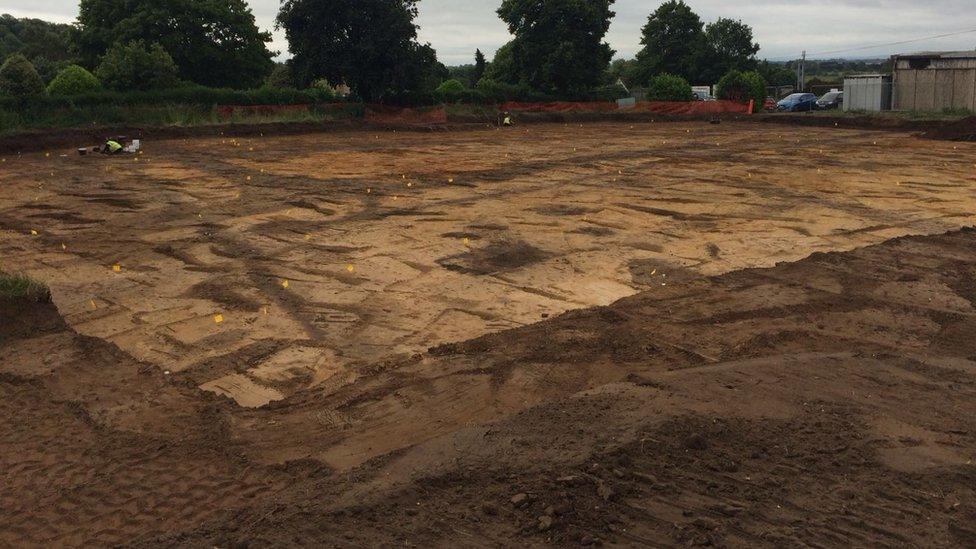
Work to convert the site into a cemetery will start in the autumn once the archaeological dig is over
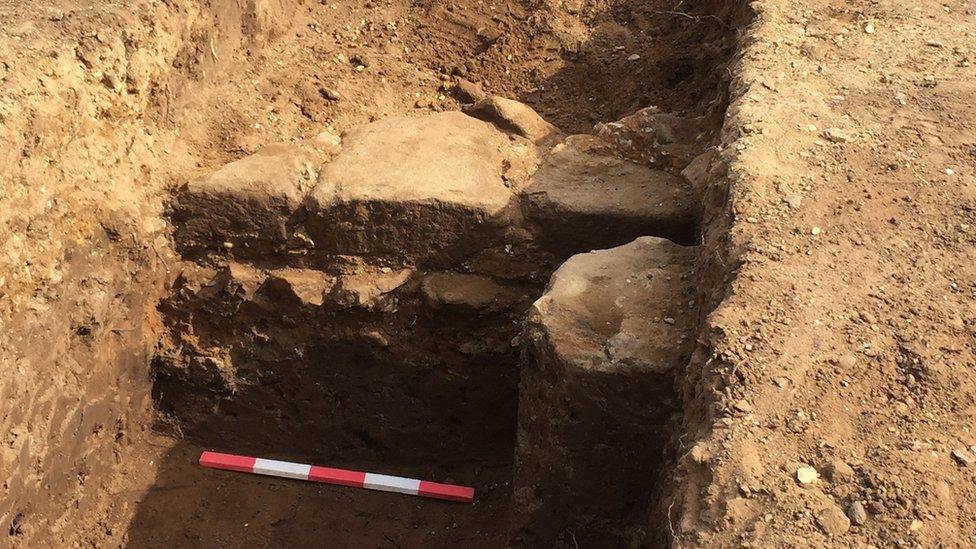
It is believed the foundations of the Roman town wall were constructed out of local ironstone and the stonework was mortared together
Les Capon, project manager for AOC Archaeology, said: "There are no clues of there being a wall - it is a first for almost 2,000 years.
"No-one has seen that, but we have now exposed it on the dig and buried it underground for preservation forever."
Hannah Firth, planning archaeologist for Central Bedfordshire Council, said: "In Bedfordshire it is the only real piece of a Roman town wall and it is absolutely brilliant. I have to say we were not expecting it either, which makes it even more important.
"This is probably one of the most exciting finds for this part of Bedfordshire."
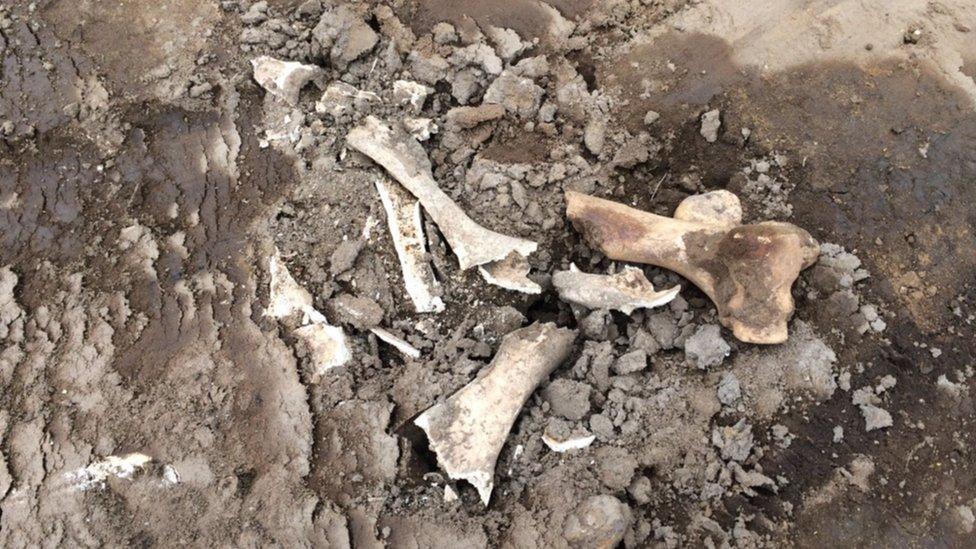
A number of animals bones, thought to be either from horse or cow, were found chopped so the marrow could be removed
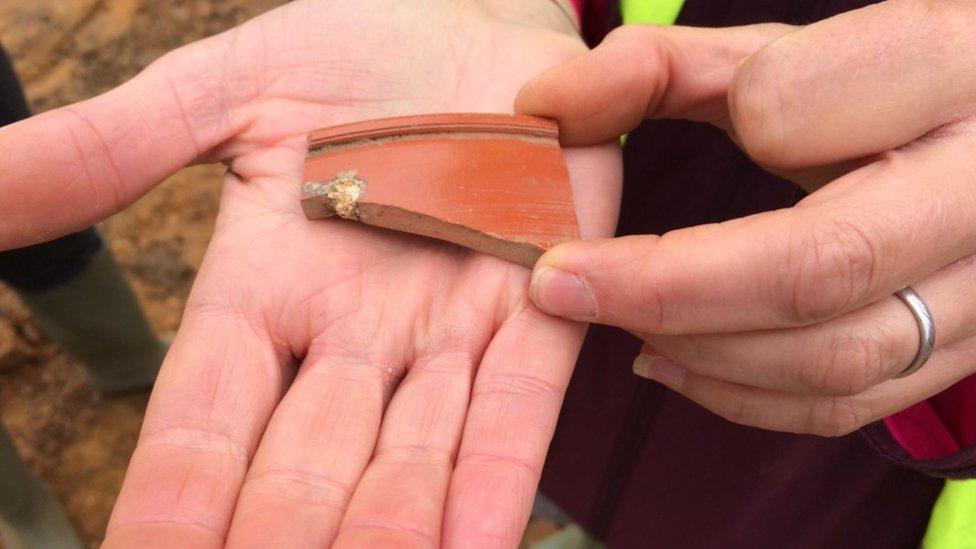
Segments of Samian pottery were found, with the remains of a small lead rivet or staple showing it had been repaired
Chris Robson, clerk at Sandy Town Council, said the finds, including pottery, animal bones, Roman rubbish and the skeleton of Roman female, would go to The Higgins Bedford museum but he hoped a travelling display would eventually come to Sandy.
He said he also hoped a plaque or information board could be placed where the wall was discovered "just so people know what is there and what the significance was".
- Published7 February 2018
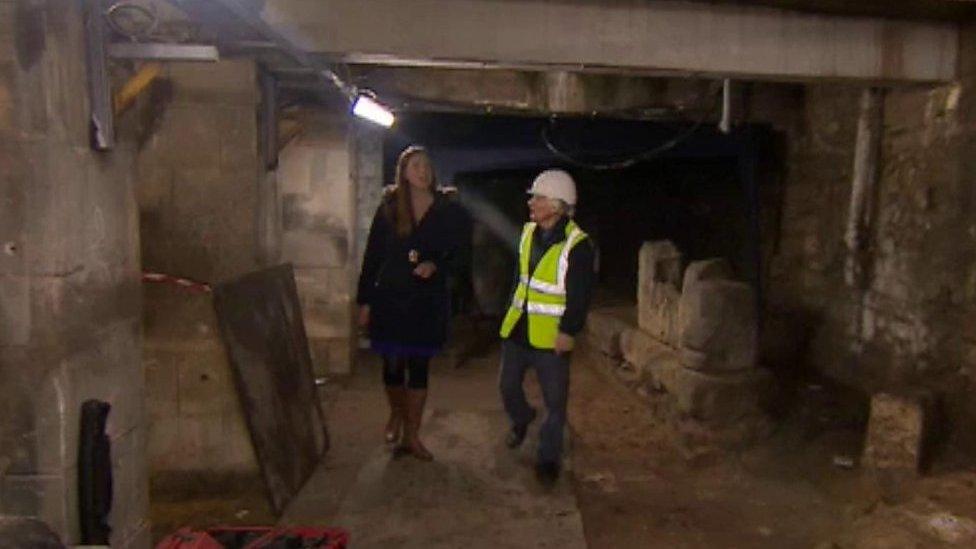
- Published8 April 2017
